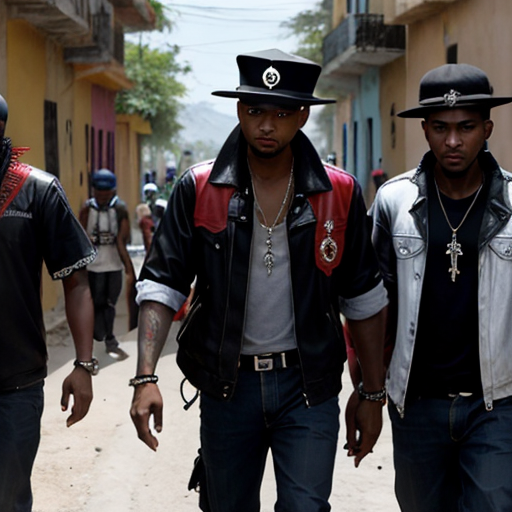04. March 2024
How gangs came to dominate Haiti

How gangs came to dominate Haiti
Gangs have taken control of large swathes of Haiti’s capital and rural areas. Government without a single elected official and a gang leader who openly threatens the prime minister. Thousands of prisoners on the loose after gangs stormed the jails they were in. The scenes unfolding in Haiti are shocking even to those who have been following the rise of armed groups.
The most recent outbreak of gang violence has been fuelled by the assassination of President Jovenel Moïse on 7 July 2021. The president was shot dead by a group of Colombian mercenaries at his home outside of Port-au-Prince. An investigation into his killing has still not determined who ordered the president’s assassination. Gang violence had already been rampant under President Moïse.
But the power vacuum created by his murder allowed these gangs to seize more territory. And it is not just the position of president which is vacant. All elected official have run out, leaving the country’s institutions rudderless. Jimmy Chérizier is a former police officer who became a gang leader after he was fired from the police force.
He leads G9, an alliance of nine gangs founded in 2020 which reportedly has links to late President Moïse’s Tèt Kale Party. He has opposed Prime Minister Henry from the start. Gang leader Ariel Henry was prevented from laying a wreath at a monument. Jimmy Chérizier’s gang suddenly showed up and fired shots into the air.
Schools and hospitals have had to close and more than 100,000 people fled their homes in 2023. The G9 gang also blocked access to the Varreux fuel terminal in 2022. This caused fuel shortages and hampering other key deliveries, such as medicines and drinking water. The International Committee of the Red Cross told the BBC its staff had to talk to hundreds of gangs in order to deliver humanitarian aid.
Eighty percent of the capital is now estimated to be under gang control. Women and young girls in particular are targeted by the gangs. Haiti’s national police force only has 9,000 active-duty officers in the country of 11 million inhabitants. The Bahamas, Bangladesh, Barbados and Chad have formally told the UN that they plan to send security personnel.
Haiti, which became independent from France after the successful 1791 slave revolt, was occupied by the US from 1915 to 1934. During this latest spike in violence, Mr Henry went to Kenya to lobby officials there to make good on their promise to deploy 1,000 police officers to Haiti. Some critics of Mr Henry fear he wants to use the Kenyan police force to prop up his power. Jimmy Chérizier is one of those who has accused Ariel Henry of trying to cement his power by inviting in foreign security personnel.
Subsequent US military interventions between 1994 and 2004 have also made many wary of outside interference. It is not currently clear where Mr Henry is, but with thousands of prisoners on the run, the odds of the prime minister quickly re-stablishing order have just become more remote. The battle will last as long as it needs to,"" he added.